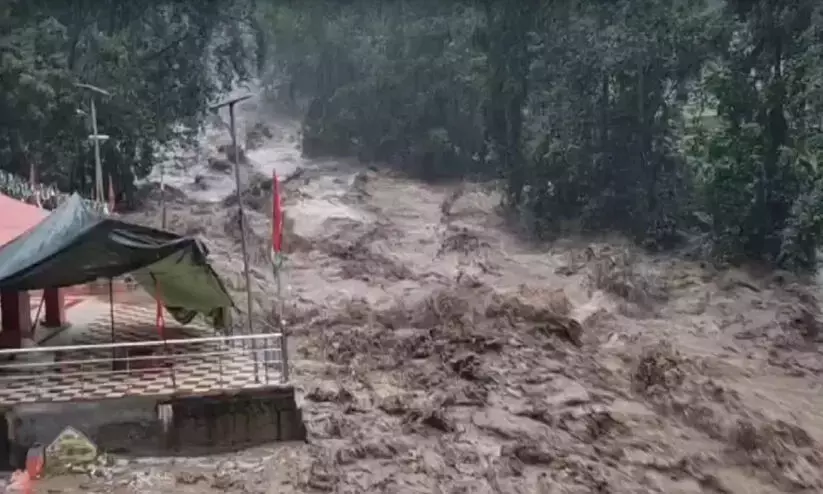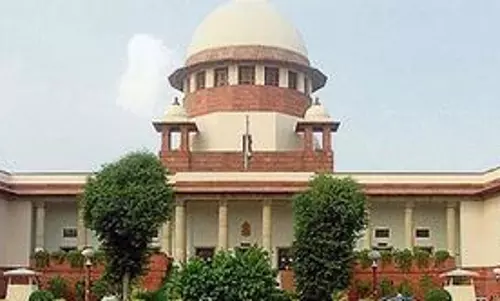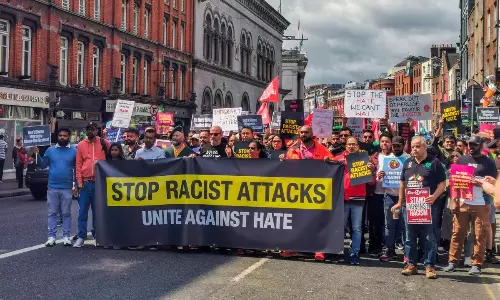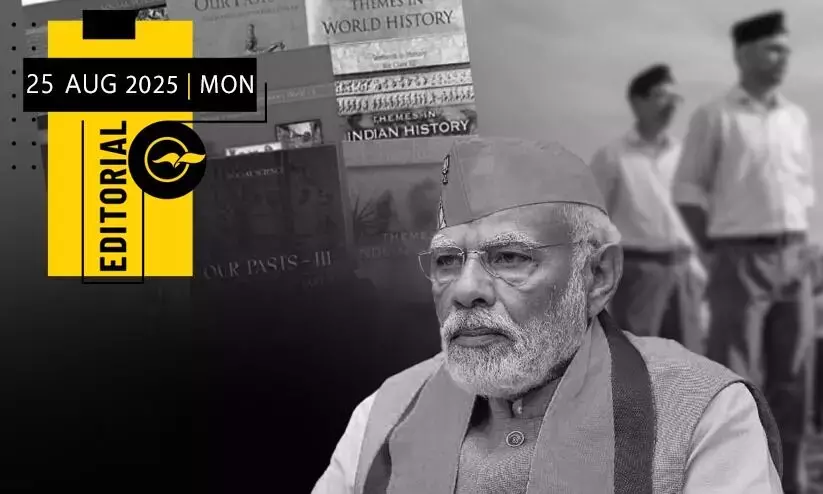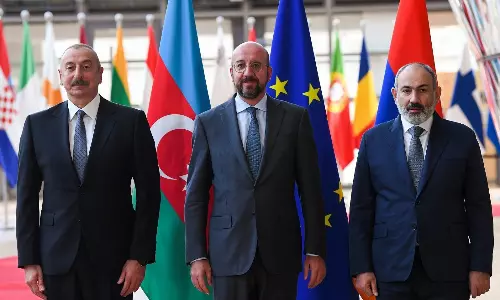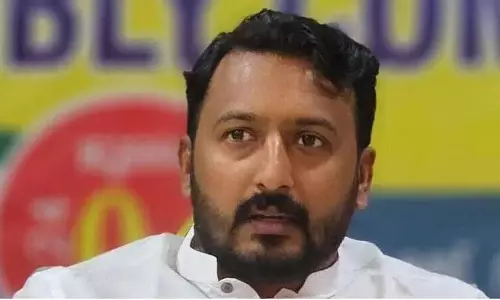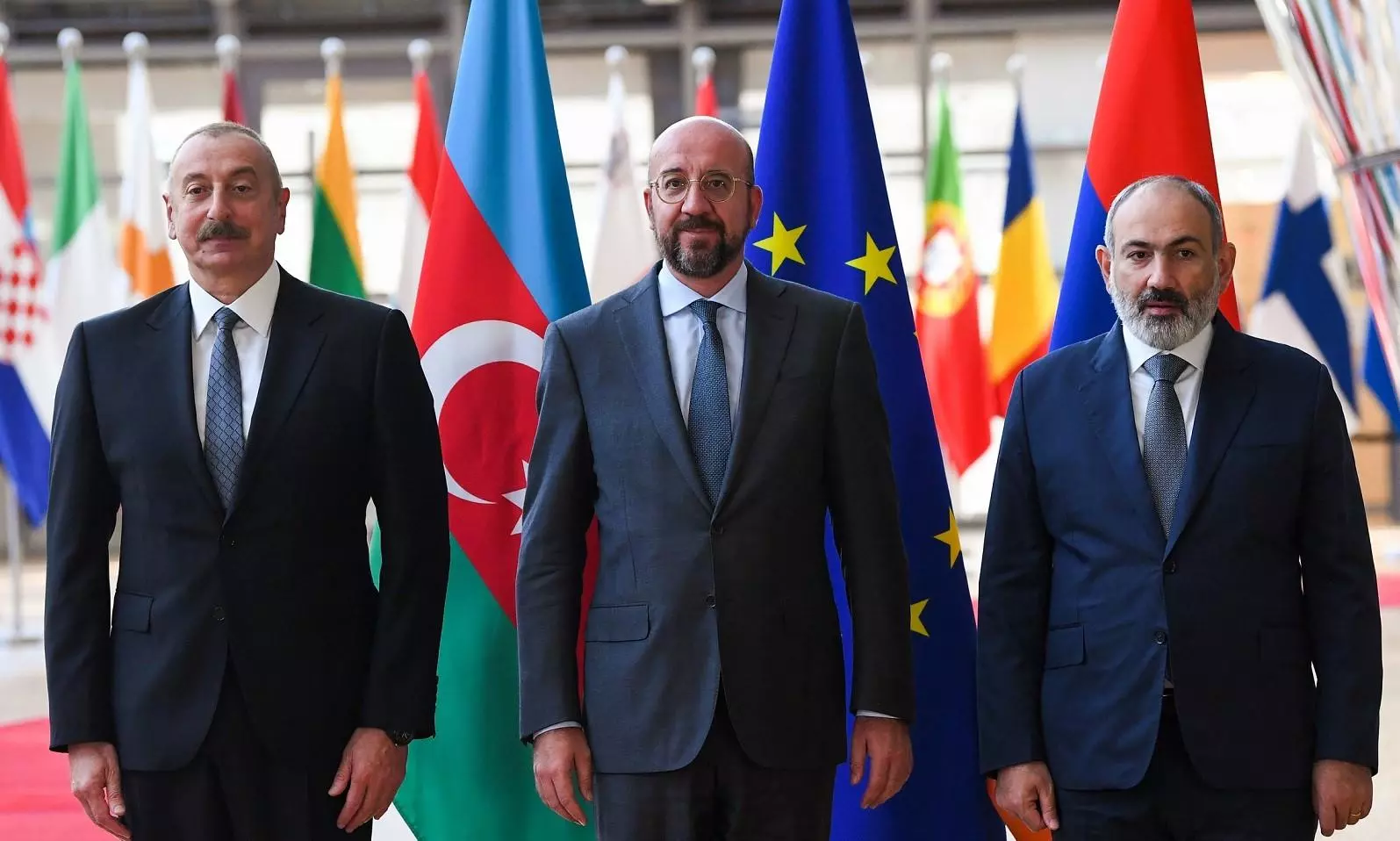
Will the Azerbaijan-Armenia peace last?
text_fieldsIn August 2025, the two Caucasus neighbours signed a peace agreement in Washington, DC. The United States brokered the deal between the two former Soviet republics.
Armenia recognises Nagorno-Karabakh as Azerbaijani sovereign territory and shall not attempt to recover it. Azerbaijan shall respect Armenia’s territorial integrity. Azerbaijanis and Turks will be allowed to travel across Armenia. Moreover, the Azerbaijani enclave of Nakhchivan will be allowed a road link across Armenia to the main portion of Azerbaijan. This is the Zangezur Corridor or as the US prefers to call it: the Trump Route for International Peace and Prosperity.
The USA seemed a good peace broker, as it has no dog in the fight. It is not an ally or enemy of either country. Azerbaijan has some economic importance for the US but Armenia does not. There is a small but noisy Armenian-American community: under 1% of the population of the United States.
Nagorno-Karabakh has had an ethnic Armenian majority since time immemorial, but it was a narrow one. In the 1930s, Stalin moved more Armenians there to make it 90% ethnically Armenian, but he gave it to Azerbaijan. The aim was to make the dissolution of the USSR impossible. In 1991, when the USSR broke up, Armenia seized Nagorno-Karabakh as ethnic Armenians there rebelled against Azerbaijan.
The Armenians are very worried about being wiped out. Armenia was part of the Ottoman Empire for centuries. In the 1890s, there was a genocide against them. In 1915, another one started, which killed at least 30% of all Armenians. Turkey and Azerbaijan refuse to recognise this. In fairness, there were Turks and Azerbaijani civilians massacred by Armenians in 1918 and in the 1990s.
Until now, to travel from the main part of Azerbaijan to the Azeri exclave of Nakhchivan, a person had to travel either via Iran or via Georgia and Turkey. Nakhchivan found it difficult to trade with the rest of Azerbaijan. Nakhchivan is the only portion of Azerbaijan adjacent to Turkey.
It would be marvellous if the agreement were to last. No one else would be killed. Both countries would be secure. It would stimulate trade and economic growth.
The Azerbaijanis may sense that they have a major advantage. They won the 2020 war and subsequent skirmishes. Their economy has grown steadily, enabling them to update their military technology. Western countries are weaning themselves off Russian oil and gas. Azerbaijan is a vital alternative source. Therefore, they cannot afford to lose the Azerbaijanis.
Baku may yet break the deal in the hope of gaining more land. Azerbaijan sometimes claims almost all the land and says that the Armenians are not the original inhabitants of that territory and were merely guests. Baku has seen other states get away with aggression. Azerbaijan might wait for the Armenians to lower their guard and cut the armed forces. Azerbaijanis and Turks crossing back and forth across Armenia would have the chance to spy and engage in sabotage.
There are hardline Armenian nationalists who oppose the deal. They consider it a humiliation that the country has accepted it will never get Nagorno-Karabakh back. They are sworn to stop Azerbaijani and Turkish vehicles from crossing through Armenia. There might be attacks on such vehicles. If someone is killed in such an attack, that might be casus belli for Azerbaijan.
Baku may calculate that the United States does not care about the region. If it attacks Armenia, there will be no serious repercussions. Trump’s repeated threats to take firm action against Russia have led to nothing. Trump can be bought off with money or praise. As EU countries are heavily reliant on Azerbaijani oil and gas they are unlikely to do much. As they say – don’t bite the hand that feeds you.
Russia was shut out of the deal. Russia regarded these countries as its near abroad. This was according to Moscow a Russian sphere of influence. It had arbitrated the 2020 peace agreement between Armenia and Azerbaijan as well as the 1994 peace agreement. Neither peace held. Moscow has been ignored as it has failed to keep the peace in the region. Russia liked to keep the two countries off balance and competing for its support. Both purchased weapons from Russia. Russia does not have weapons to export: it needs them all for itself. It does not have the money or the headspace to deal with the Caucasus.
There was an attempt to seal peace between Armenia and Azerbaijan in 1999. Before it could be signed, armed men broke into the Armenian Parliament and shot dead the Prime Minister and four pro-peace politicians. The killers were Armenian ultra-nationalists. They said Russia had assisted them with the plot. Alexander Litvinenko, the Russian military intelligence officer who defected to the British in 2001, said that it is true that Russia orchestrated the plot because it wanted to scotch peace between the two quondam Soviet States. Russia believed that tension between them served to strengthen Russian mastery in the region.
Armenia is still a member of the Collective Security Treaty Organisation (CSTO). This is an alliance of six former Soviet countries led by Russia. But when Azerbaijan attacked Armenian soil, the Russians refused to send arms, let alone do any fighting. Armenia is totally disillusioned with the CSTO and has stopped sending delegates to CSTO conferences. Until recently, many Armenians argued they had to stay close to Russia. There was no alternative. Armenia is a mountainous and landlocked country of only 3 million people, bereft of natural resources. There are 1 million people of Armenian descent in Russia, many of whom are Russian citizens. Armenia bought almost all its arms from Russia, partly because Russian arms are the cheapest, and Armenia could not afford more expensive assets.
Azerbaijan has plenty of oil and gas. It can afford much better military kit than Armenia. The Azeris are the cousins of the Turks. Their languages are almost the same, and they were once one country. Azerbaijan has the backing of Turkey, which is a NATO member. Azerbaijan is strategically and economically important, and Russia knows it. That is why Moscow did not irk Azerbaijan and Turkey by assisting Armenia.
During the Ukraine War, Azerbaijan and Turkey did not sanction Russia. Putin even went on a state visit to Azerbaijan in 2024. He praised the way he was received ‘in a familial manner.’ Azerbaijan and Turkey have maintained the strictest neutrality in the Ukraine War. It has been an economic bonanza for them. It has been very easy to make profits but helping Russia evade sanctions.
The peace agreement is bad news for Iran. Armenia had a good relationship with Iran, its neighbour. Iran and Azerbaijan have strained relations. Two-thirds of historic Azerbaijan is now in Iran. Azerbaijan would like it back. Iran is a theocracy, whereas Azerbaijan is secular. Yerevan and Tehran had an axis on the basis that the enemy of my enemy is my friend. The two cooperated economically.







